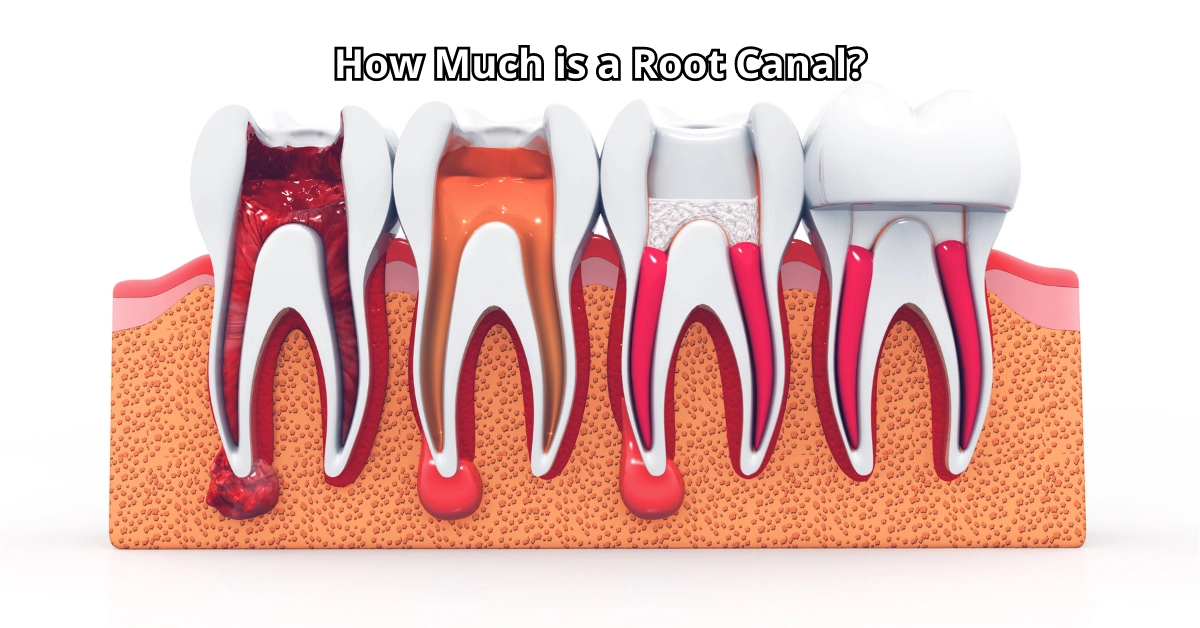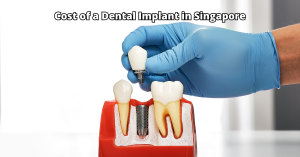Root Canal Treatment In Singapore: How Much Does It Cost In 2023?

A root canal treatment is often the last resort to save a tooth that is severely decayed or damaged. It’s one of the most popular dental procedures performed worldwide to preserve natural teeth.
A root canal infection often begins as a small, treatable cavity that grows over time. If left untreated, the bacteria eats through the crown and gets to the nerves, causing intense pain and sensitivity. At this stage, a root canal treatment is the only way to put you at ease.
While scaling and polishing procedures help treat cavitation limited to the tooth surface, they are less effective in treating infected root canals.
You might have a deep-seated tooth infection if you are dealing with gum swelling, cavitation, or a toothache that just doesn’t go away. Get in touch with our experts for a comprehensive treatment for your condition before it gets converted into something worse.
The cost of root canal treatment in Singapore varies widely throughout the country. On average, the complete procedure costs anywhere between S$500 to S$1,400. The type of teeth that needs extraction combined with your dentists’ experience will determine your final bill.
Let’s look at what a root canal treatment is, who needs it, and how much it costs in Singapore.
What is root canal treatment?

Traditionally, the only way to get rid of a root infection was through extraction. If the infection was allowed to invade the roots, removing the tooth altogether and replacing it with an implant was the only way to save other teeth from getting infected.
With technological advancement, dentists found a way to save a dying tooth by replacing the damaged nerves with an artificial filling material.
Root canal treatment, or simply root canal, is a dental procedure that removes the deep-seated decay from your teeth. This popular method of cleaning the teeth from within relieves pain, prevents the spread of infection to other teeth, and saves your dying tooth.
The enamel and dentin, collectively known as the crown, are the two superficial layers of your teeth. They sit on the top of another connective tissue layer called the core, extending to the root in your jawbone. The core also called the pulp, comprises blood vessels, nerves, and connective tissue. It nourishes the growing teeth.
Long-standing cavitation or tooth injury can result in irreversible pulp damage. When the infection seeps deep into the pulp, the root canal becomes the only way to save the severely decayed teeth that would otherwise need an extraction, dental bridges, and implants.
Besides eliminating infections from the root of your teeth, root canal treatment also prevents further damage and strains on neighbouring teeth.
During the procedure, your dentist will remove the infected area of the root and clean it from within. The leftover space is then filled with a sterile rubber solution to prevent reinfection. In most cases, you will also need a dental crown or artificial teeth to support your teeth in the years to come.
When do you need root canal treatment?
When the cavitation has gone past two layers of the teeth, there are only two ways to get rid of them; 1. Root canal treatment, or 2. Tooth extraction.
There are a few indicative symptoms of root canal infection. It’s better to reach out to your dentist for evaluation of tooth damage if you have,
- Toothache that doesn’t seem to go away
- Swollen and tender gums
- Deep-seated tooth decay
- Sensitivity to both hot and cold
- Chips or cracks in your teeth
- A loosened or moving teeth
Root canal treatment procedure

The root canal treatment comprises two or more dental visits in most cases. Here’s how your root canal will look like at DP Dental.
Initial Consultation
We will thoroughly examine your teeth when you walk through our door for an initial consultation. We might order an X-Ray and a pulp vitality test to determine the extent of tooth damage if a root canal infection is suspected. If the pulp is involved and there is a risk of permanent tooth damage, we will prepare a comprehensive treatment plan for you. In an active infection, we will also prescribe antibiotics to reduce pain and limit bacterial growth.
Administration of Anesthesia
Having a root canal done on you is not the most fun thing in the world. However, with an experienced endodontist and a numbing agent, there is nothing you need to worry about. Ahead of the procedure, we will use local anaesthetics to ensure a pain-free treatment. The anaesthetic will take effect within a few minutes, and you won’t feel anything until the treatment is completed.
Dental Dam Placement
We will place a soft, stretchable sheet called a “dental dam” over the target teeth as soon as the anaesthesia kicks in. It helps to isolate the target tooth and prevent neighbouring teeth from fine needles and chemicals used in the process.
Clearing the root canals
Next, we will drill a tiny hole through the crown of your teeth. Taking away some part of your tooth helps access the infected roots. Through this opening, we will evacuate the infected pulp and debris from every canal of your tooth.
Filling the canals
After cleaning out the infected nerves and debris from the root, it’s time to fill the empty spaces. We’ll use tiny instruments called files to replace the pulp with an adhesive substance called gutta-percha. This permanent filling material helps stabilise the tooth and prevents the penetration of bacteria in the future.
Placing a dental crown
In most cases, the last step of root canal treatment involves placing a dental crown over the treated tooth. Since the tooth is often weakened and vulnerable due to extensive decay, artificial teeth made of gold or porcelain are often needed to protect them from future damage.
After the treatment
On average, the complete root canal treatment takes thirty minutes to an hour. If the infected teeth are further back in the mouth, expect to stay no more than two hours in the dental office.
While it is normal to feel soreness and tenderness after the root canal treatment, the symptoms should not last more than a couple of weeks. We will prescribe medications to relieve pain during this period. If the pain persists beyond two weeks, let us know.
How much does root canal treatment cost in Singapore?
The cost of root canal treatment in Singapore varies widely due to several factors. What you will pay during the treatment will depend upon the severity of your issue, the type of infected teeth, and your dentist’s experience.
In addition, some insurances may reimburse 100% of the total cost while others only cover a certain percentage.
When the root canal treatment is carried out on molar or back teeth, it costs around S$800 to S$1,400 on average. Molars are tough to visualise and contain two to three root formations. Due to the laborious and time-consuming nature of root canal treatment in the posterior teeth, your treatment will be a bit more expensive.
For more accessible front teeth, though, the price varies from S$500 to S$800.
Adding initial consultation and crowning to the picture, your treatment cost will be slightly higher depending upon the type of crown you choose.
When opting for root canal treatment, the experience and reputation of your dentist are critical factors to consider. It requires exceptional skills that only the most experienced dentists have mastered.
While root canal treatment seems costly at first glance, its benefits outweigh the cost in the long run. It’s an essential step to save yourself from extraction and dental implants, which ultimately cost even more when combined with dental implants.
If you are concerned about your symptoms, get in touch with our experts for a thorough evaluation today.




